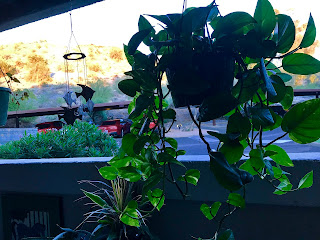Friday, October 26, 2018
Thursday, October 18, 2018
Stephen Jenkinson - Orphan Wisdom
"... Dying
well is not a matter of enlightened self-interest or personal
preference. Dying well must become an obligation that living people
and dying people owe to each other and to those to come. Dying could
be and must be the fullest expression and incarnation of what you’ve
learned by living. If you love somebody, if you care about the
world that’s to come after you, if you want somebody to be spared
the lunacy of what you’ve seen, you’ve got to die wise.
From his two decades of working with dying people and their families, Stephen Jenkinson places death at the center of the page and asks us to behold it in all its painful beauty. Dying well is a right and responsibility of everyone. It is a moral, political, and spiritual obligation each person owes their ancestors and their heirs. It is not a lifestyle option. It is a birthright and a debt. How we die, how we care for dying people, and how we carry our dead: this work makes our village life, or breaks it..."
From his two decades of working with dying people and their families, Stephen Jenkinson places death at the center of the page and asks us to behold it in all its painful beauty. Dying well is a right and responsibility of everyone. It is a moral, political, and spiritual obligation each person owes their ancestors and their heirs. It is not a lifestyle option. It is a birthright and a debt. How we die, how we care for dying people, and how we carry our dead: this work makes our village life, or breaks it..."
Stephen
teaches internationally and is the creator and principal instructor
of the Orphan Wisdom School founded in 2010. With Master’s degrees
from Harvard University (Theology) and the University of Toronto
(Social Work) he is redefining what it means to live, and die well.
Apprenticed to a master storyteller, he has worked extensively with
dying people and their families, is former program director in a
major Canadian hospital, former assistant professor in a prominent
Canadian medical school, consultant to palliative care and hospice
organizations and educator and advocate in the helping professions.
He is also a sculptor, traditional canoe builder whose house won a
Governor General’s Award for architecture. He is the author of Die
Wise: A Manifesto for Sanity and Soul (a book about grief, and dying,
and the great love of life, released March 2015), How it All Could
Be: A work book for dying people and those who love them(2009) and
Money and The Soul’s Desires: A Meditation (2002). He was also a
contributing author to Palliative Care – Core Skills and Clinical
Competencies (2007). Stephen is the subject of Griefwalker, a
National Film Board of Canada film (2008).
Tuesday, October 16, 2018
Monday, October 15, 2018
Too Much Woman
There she is taking up too much space, with her laughter, her curves, her honesty, her sexuality. Her presence is as tall as a tree, as wide as a mountain. Her energy occupies every crevice of the room. Too much space she takes.
There she is causing a ruckus with her persistent wanting, too much wanting. She desires a lot, wants everything—too much happiness, too much alone time, too much pleasure. She’ll go through brimstone, murky river, and hellfire to get it. She’ll risk all to quell the longings of her heart and body. This makes her dangerous.
She is dangerous.
And there she goes, that “too much” woman, making people think too much, feel too much, swoon too much. She with her authentic prose and a self-assuredness in the way she carries herself. She with her belly laughs and her insatiable appetite and her proneness to fiery passion. All eyes on her, thinking she’s hot shit.
Oh, that “too much” woman. . . too loud, too vibrant, too honest, too emotional, too smart, too intense, too pretty, too difficult, too sensitive, too wild, too intimidating, too successful, too fat, too strong, too political, too joyous, too needy—too much.
She should simmer down a bit, be taken down a couple notches. Someone should put her back in a more respectable place. Someone should tell her.
Here I am. . . the Too Much Woman, with my too-tender heart and my too-much emotions.
A hedonist, feminist, pleasure seeker, empath. I want a lot—justice, sincerity, spaciousness, ease, intimacy, actualization, respect, to be seen, to be understood, your undivided attention, and all of your promises to be kept.
I’ve been called high maintenance because I want what I want, and intimidating because of the space I occupy. I’ve been called selfish because I am self-loving. I’ve been called a witch because I know how to heal myself.
And still. . . I rise. Still, I want and feel and ask and risk and take up space. I must.
Us Too Much Women have been facing extermination for centuries—we are so afraid of her, terrified of her big presence, of the way she commands respect and wields the truth of her feelings. We’ve been trying to stifle the Too Much Woman for eons — in our sisters, in our wives, in our daughters. And even now, even today, we shame the Too Much Woman for her bigness, for her wanting, for her passionate nature.
And still. . . she thrives.
In my own world and before my very eyes, I am witnessing the reclamation and rising up of the Too Much Woman. That Too Much Woman is also known to some as Wild Woman or the Divine Feminine. In any case, she is me, she is you, and she is loving that she’s finally, finally getting some airtime.
If you’ve ever been called “too much,” or “overly emotional,” or “bitchy,” or “stuck up,” you are likely a Too Much Woman.
And if you are. . . I implore you to embrace all that you are—all of your depth, all of your vastness; to not hold yourself in, and to never abandon yourself, your bigness, your radiance.
Forget everything you’ve heard—your too muchness is a gift; oh yes, one that can heal, incite, liberate, and cut straight to the heart of things.
Do not be afraid of this gift, and let no one shy you away from it. Your too muchness is magic, is medicine. It can change the world.
So please, Too Much Woman: Ask. Seek. Desire. Expand. Move. Feel. Be.
Make your waves, fan your flames, give your chills.
~~~ Ev'yan Whitney
Friday, October 12, 2018
Friday, October 5, 2018
Love A Woman
"If you want to change the world… love a woman, just one woman
Love and protect her as if she is the last holy vessel. Love her through her fear of abandonment which she has been holding for all of humanity.
No, the wound is not hers to heal alone.
No, she is not weak in her co-dependence.
If you want to change the world… love a woman, all the way through, until she believes you, until her instincts, her visions, her voice, her art, her passion,
her wildness have returned to her-
until she is a force of love more powerful than all the political media demons who seek to devalue and destroy her.
If you want to change the world,
lay down your causes, your guns and protest signs. Lay down your inner war, your righteous anger and love a woman…
beyond all of your striving for greatness, beyond your tenacious quest for enlightenment.
The holy grail stands before you
if you would only take her in your arms
and let go of searching for something beyond this intimacy.
If you want to change the world…love a woman to the depths of your shadow,
to the highest reaches of your Being,
back to the Garden where you first met her, to the gateway of the rainbow realm where you walk through together as Light as One, to the point of no return, to the ends and the beginning of a new Earth.
Tuesday, October 2, 2018
Grief
“In the Lakota/Sioux tradition, a person who is grieving is considered most waken, most holy.
There's a sense that when someone is struck by the sudden lightning of loss, he or she stands on the threshold of the spirit world. The prayers of those who grieve are considered especially strong, and it is proper to ask them for their help.
You might recall what it's like to be with someone who has grieved deeply. The person has no layer of protection, nothing left to defend. The mystery is looking out through that person's eyes. For the time being, he or she has accepted the reality of loss and has stopped clinging to the past or grasping at the future. In the groundless openness of sorrow, there is a wholeness of presence and a deep natural wisdom.”
Tara Brach
There's a sense that when someone is struck by the sudden lightning of loss, he or she stands on the threshold of the spirit world. The prayers of those who grieve are considered especially strong, and it is proper to ask them for their help.
You might recall what it's like to be with someone who has grieved deeply. The person has no layer of protection, nothing left to defend. The mystery is looking out through that person's eyes. For the time being, he or she has accepted the reality of loss and has stopped clinging to the past or grasping at the future. In the groundless openness of sorrow, there is a wholeness of presence and a deep natural wisdom.”
Tara Brach
Subscribe to:
Comments (Atom)


































